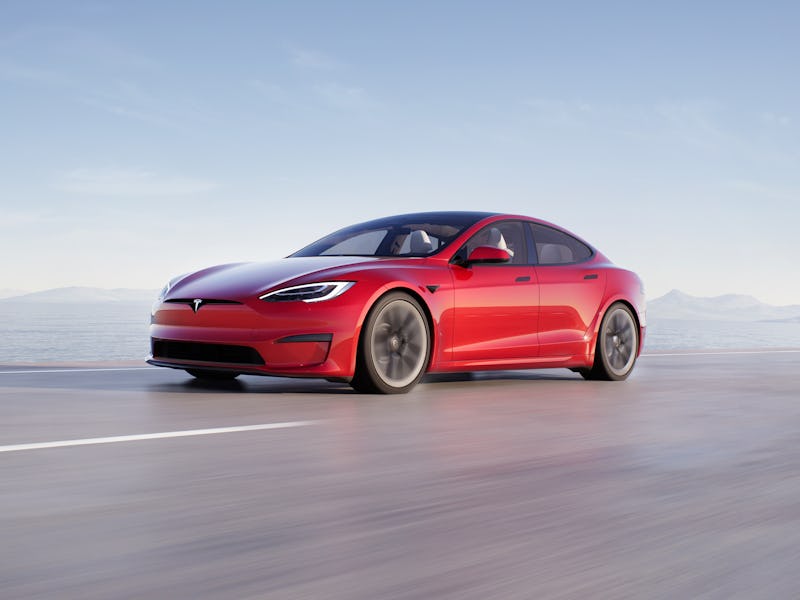Tesla: Elon Musk reveals how long it will take all cars to go electric
You’re going to wait a while.

Electric cars could soon cost the same as traditional ones — but that’s only half the battle.
During Tesla’s annual shareholder event last week, Musk explained that “the fleet is what matters” when it comes to electrifying transport. While experts believe that electric cars could reach the same price point toward the middle of the decade, it will take decades more for all cars to be replaced by electric counterparts.
In response to a question around when Tesla will not need to do any more mining for batteries — when can Tesla depend on recycling batteries to build new cars, in other words — Musk explained that “it’ll be a while because we’ve got to extend the fleet.”
Musk broke it down:
- There are around two billion cars and trucks in use in the world.
- Annual production capacity is around 100 million vehicles per year.
- Cars and trucks last around 20 years before they go to the junkyard.
- Electric vehicles are “still well under one percent” of the global fleet.
- That means it will likely take 30 to 40 years before Tesla doesn’t have to do any more mining for batteries, or 2050 to 2060.
Want to find out more about Tesla’s plans to electrify transport? Subscribe to MUSK READS+ for exclusive interviews and analysis about spaceflight, electric cars, and more.
The timeline chimes with Musk’s previous comments about how he plans to move more of the fleet to electric faster. In October 2020, Musk claimed that his goal was to produce 20 million cars per year by 2030. That would equate to one percent of the global fleet per year.
"It's difficult to say that ... are we really changing the world if we're not switching out one percent of the global fossil fuel vehicles?" Musk said.
It was an ambitious goal, especially considering Tesla delivered 367,500 cars in 2019.
Tesla Model S in action.
Going green: How it could shape out
One of the big hurdles to switching to an electric vehicle is vehicle cost. It’s declined in recent years, in part thanks to declining battery costs. In October 2019, Musk argued that traditional cars bought today will have low resale value in the future.
In 2020, the BBC reports, electric car sales accounted for just 5 percent of all car sales. That sounds small, but it’s a 43 percent increase over the previous year.
It could shoot up from here. UBS predicts that electric cars will account for 20 percent of new car sales in 2025, 40 percent in 2030, and almost 100 percent in 2040.
Others are slightly more conservative. Analysis firm IHS Markit, the New York Times reported in March 2021, predicts electric cars will comprise just 62 percent of sales by 2050. That would mean EVs comprise just 41 percent of the global fleet by that time.
To reach 95 percent electrification by 2050, IHS Markit claimed, new car sales would have to shift all-electric by 2035 — just 15 years from now.
Whether that will happen remains to be seen. The United Kingdom announced in November 2020 a ban on all-gas powered cars and vans by 2030. California has also announced plans to ban the sale of new gas cars by 2035.
President Joe Biden, who aims for 50 percent EV sales by 2030, has faced calls to go further and announce a long-term ban.
“I would love to see President Biden set a goal of 60 percent of sales to be electric cars by 2030, before all electric sales in 2035,” Margo Oge, a former director of transportation air quality at the Environmental Protection Agency, told The Guardian. “We can’t wait any longer, we have run out of time with climate change and we need car companies to start making that transformation now.”
SUBSCRIBE TO MUSK READS+, A PREMIUM NEWSLETTER THAT COVERS THE WORLDS OF ELON MUSK, SPACEX, TESLA, AND EVERYTHING BETWEEN.
This article was originally published on